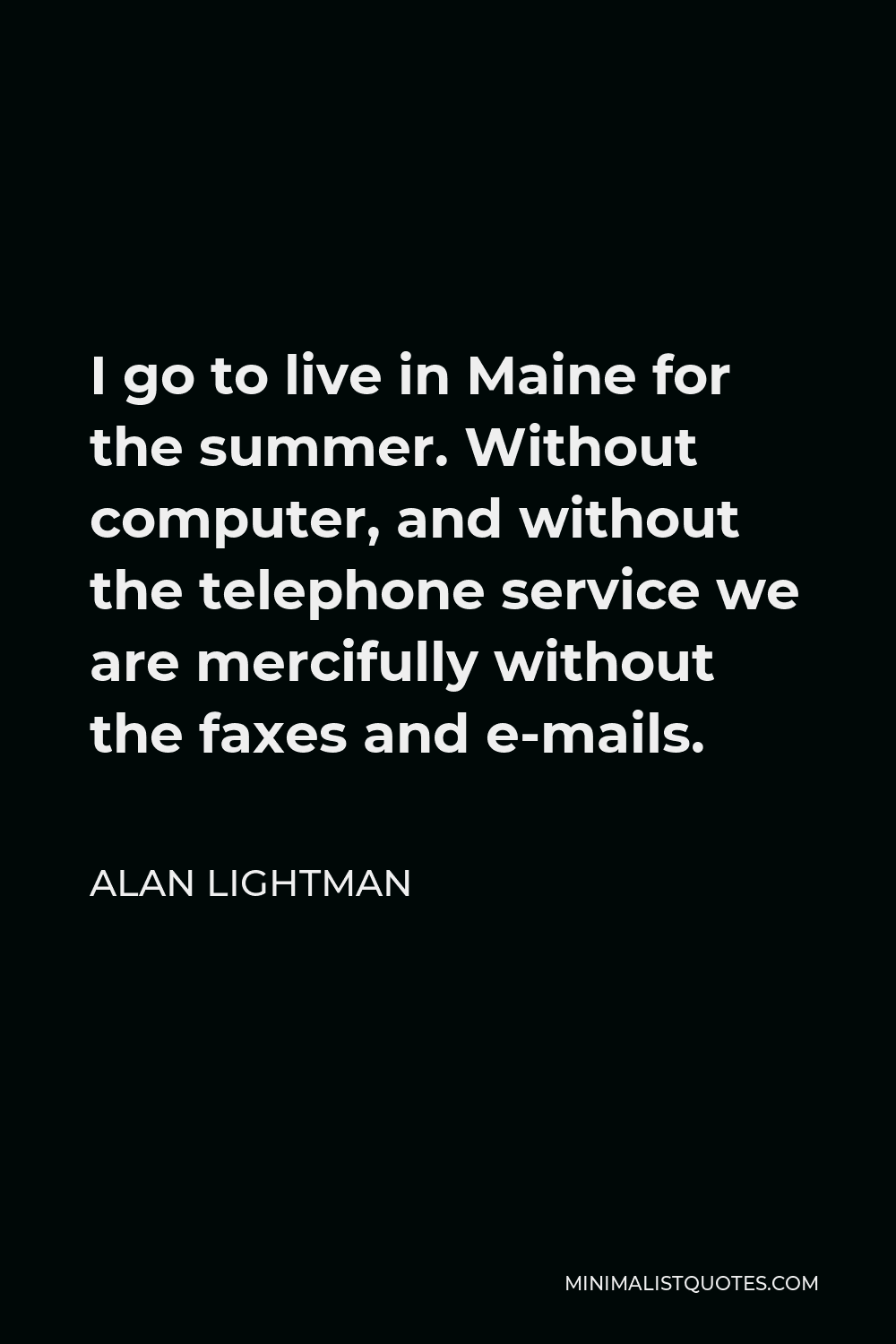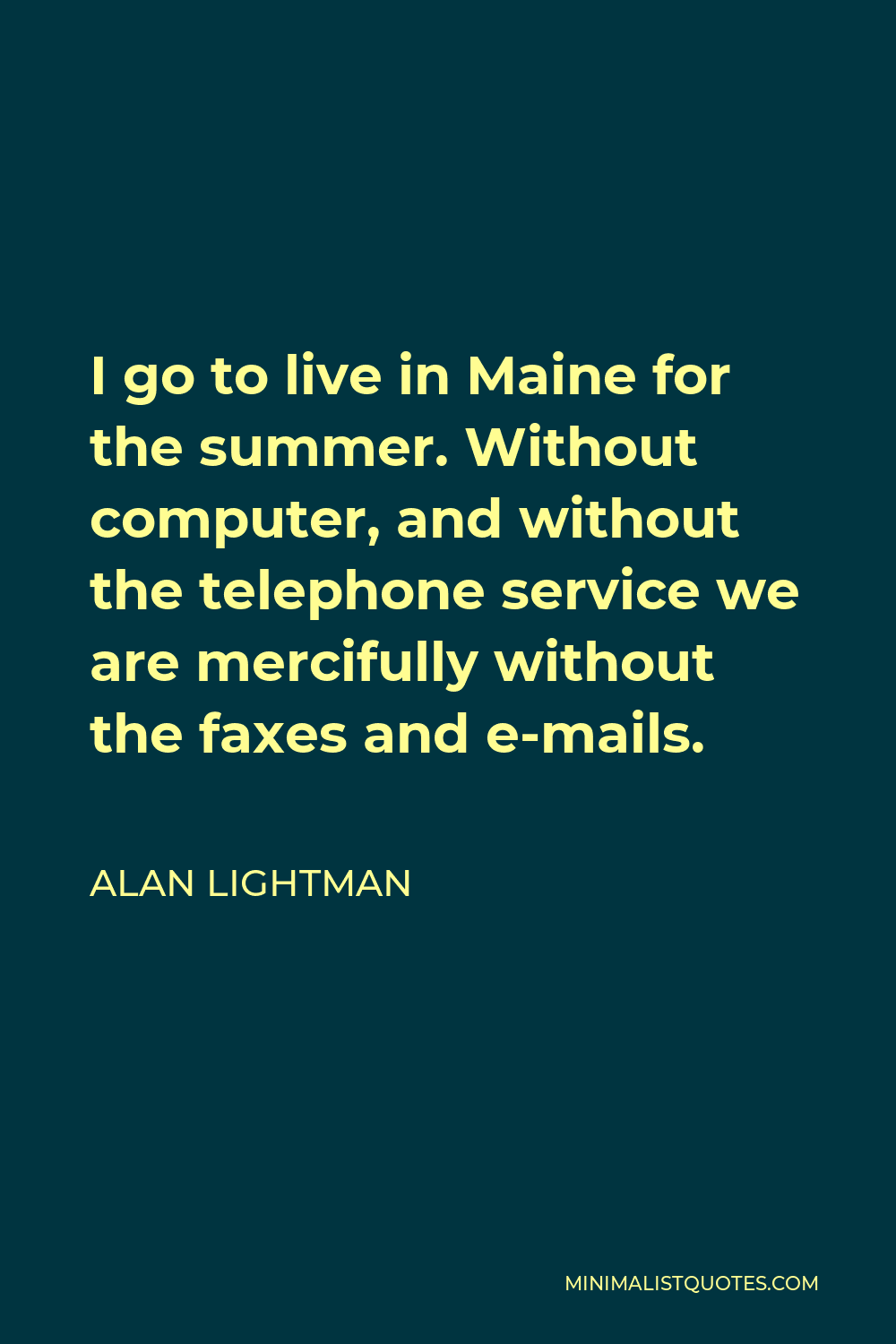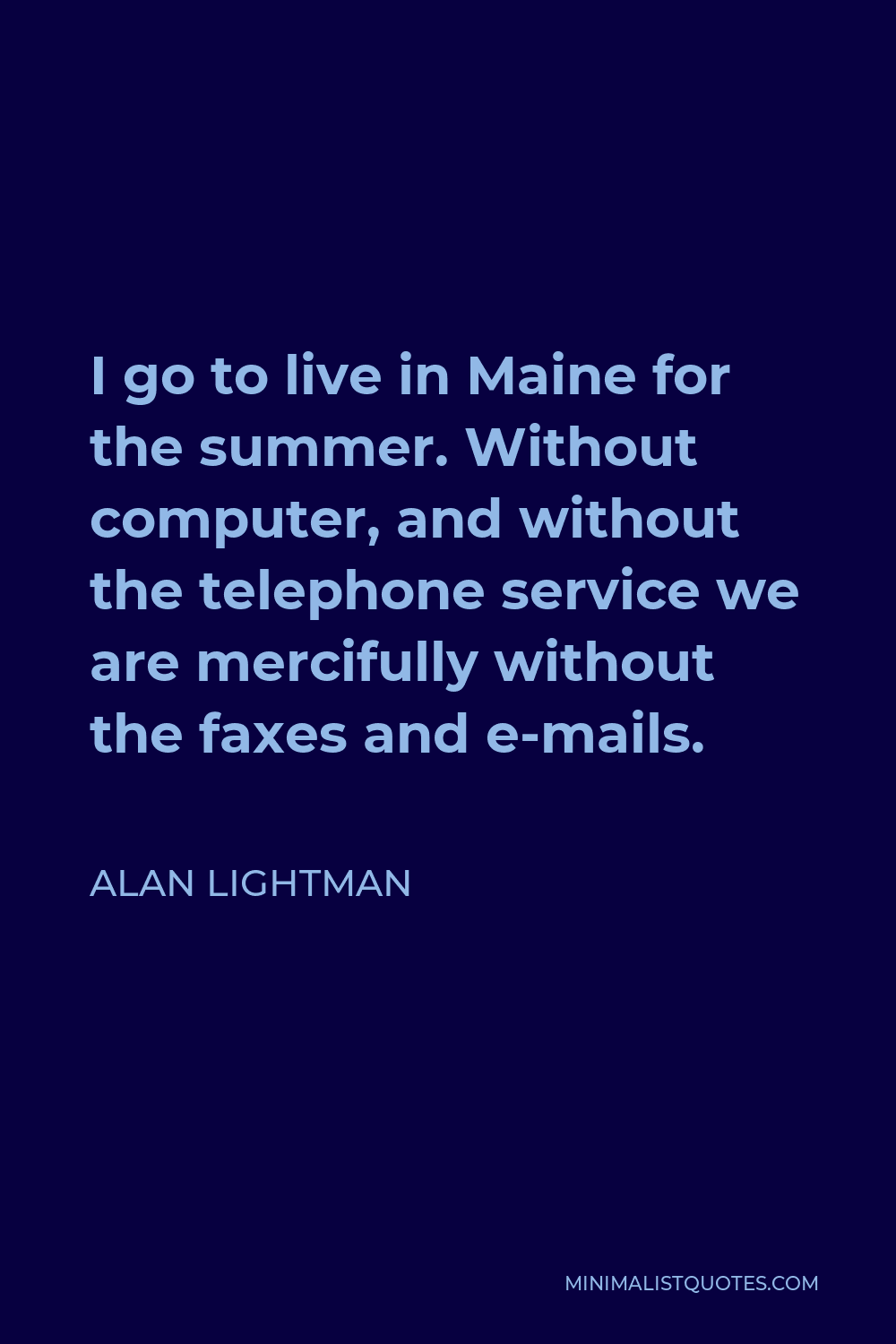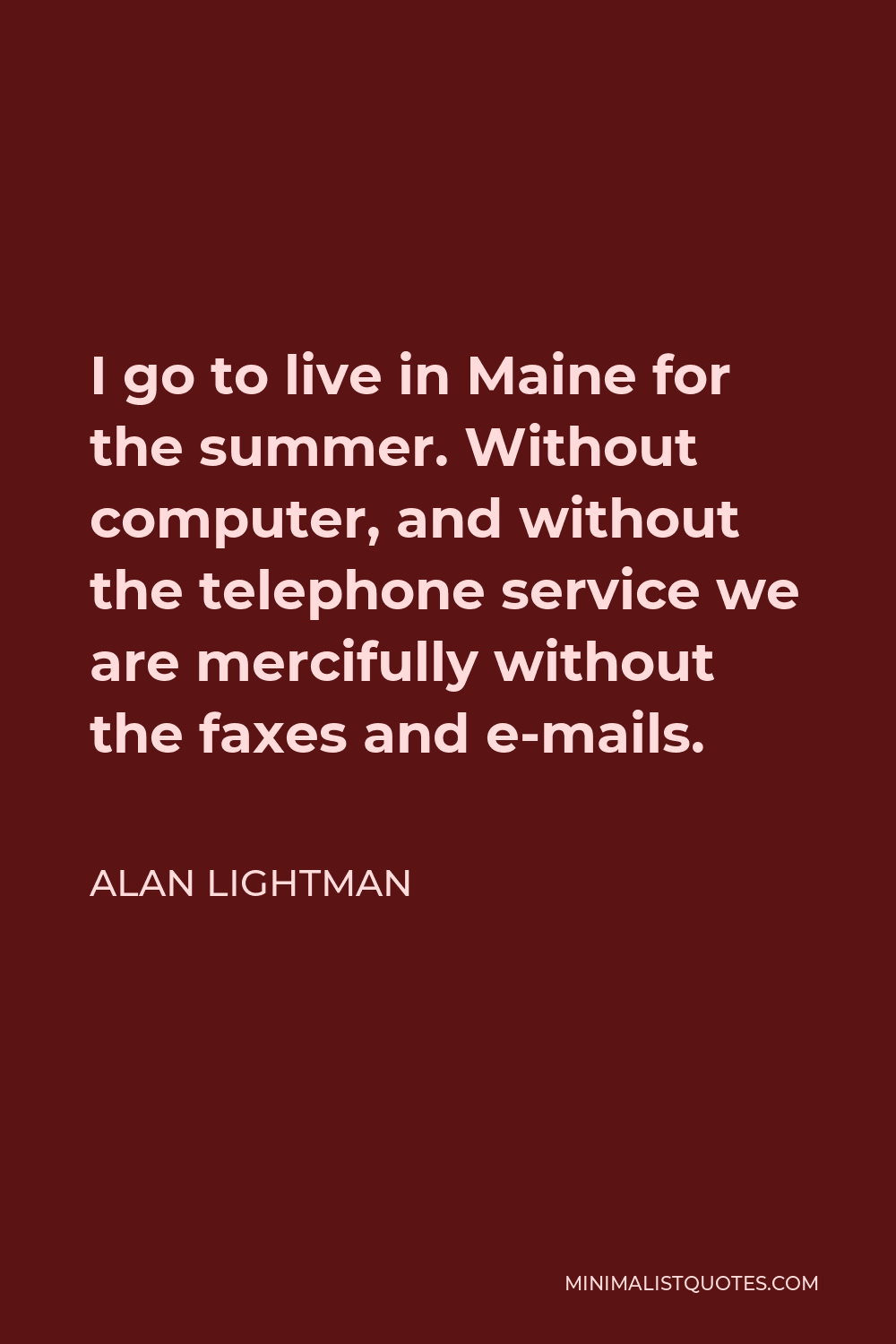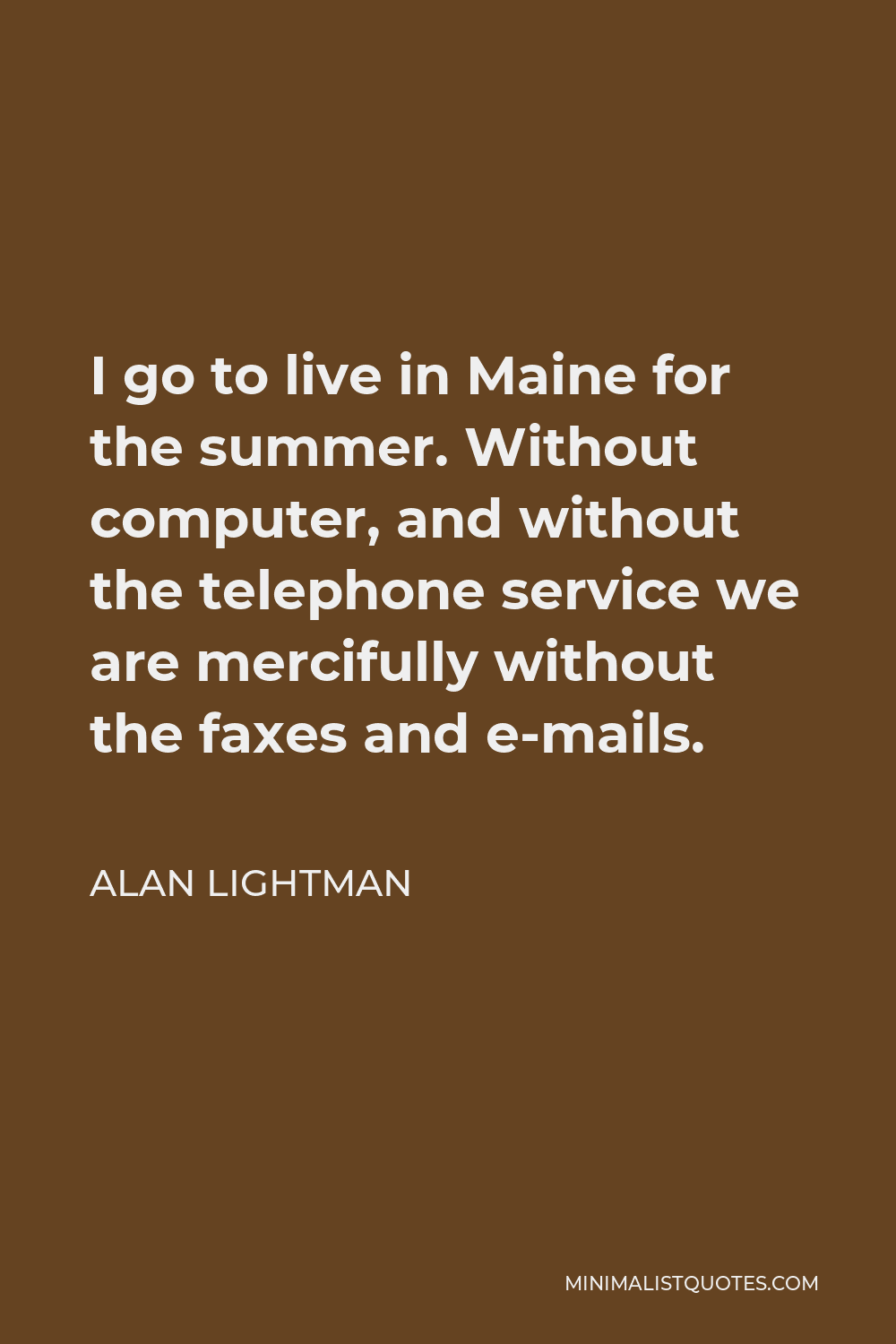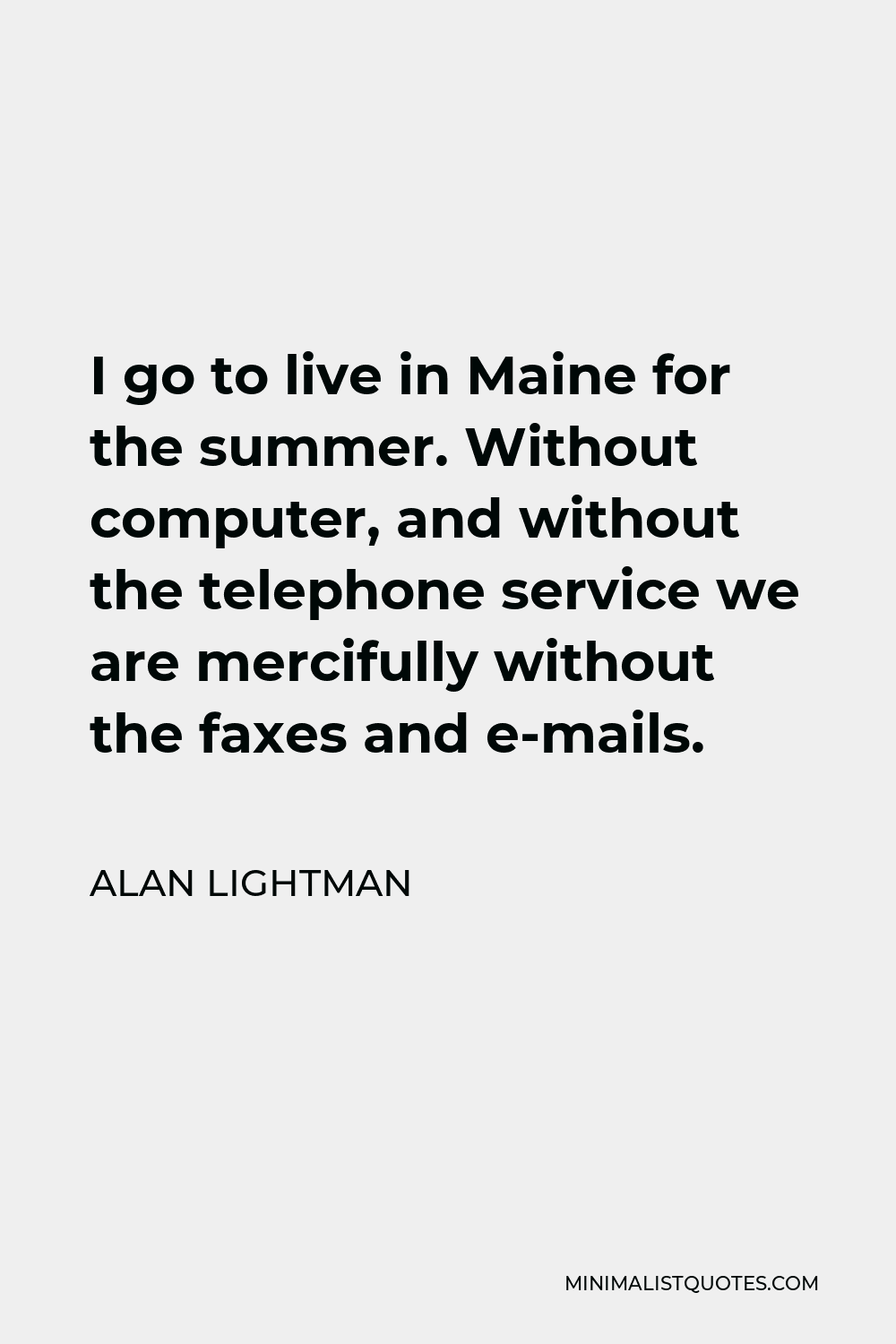I appreciate the idea of the individual person battling the society – which is true in all his books.
ALAN LIGHTMANI go to live in Maine for the summer. Without computer, and without the telephone service we are mercifully without the faxes and e-mails.
More Alan Lightman Quotes
-





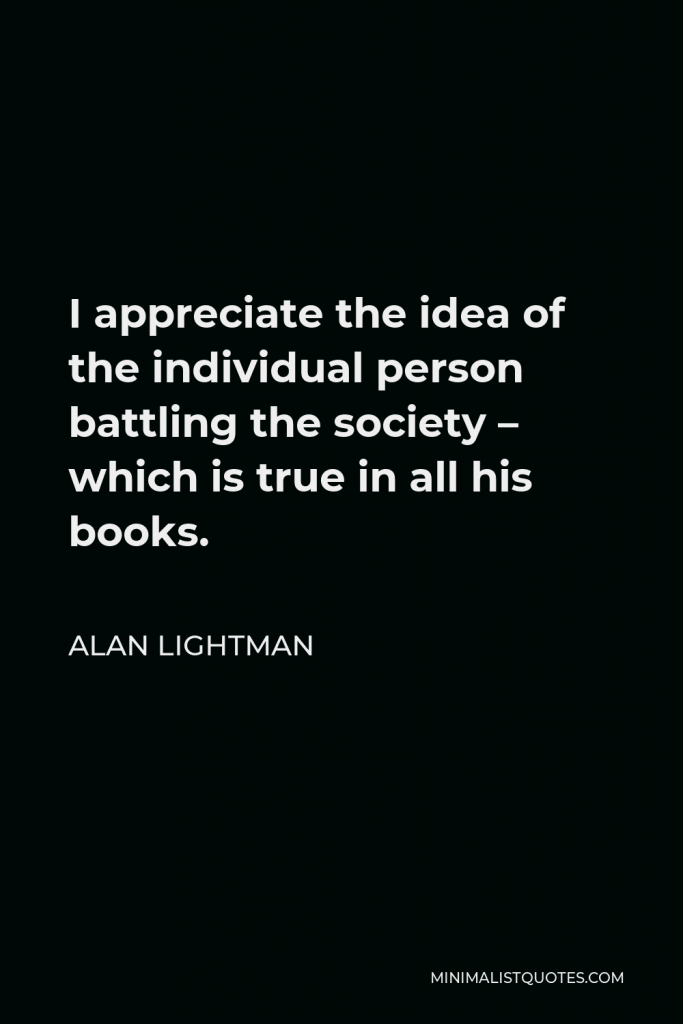

-







That’s an exciting thing. In a class of fifteen there are usually two very good writers, equal to good student writers anywhere in the country. Those two make the class wonderful.
ALAN LIGHTMAN -





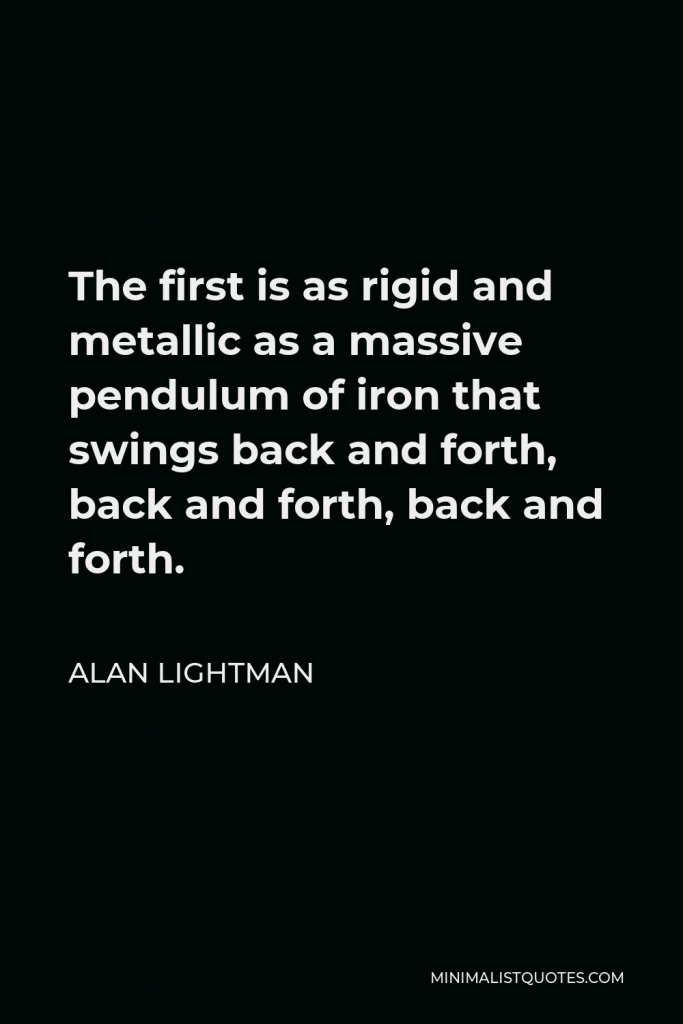

The first is as rigid and metallic as a massive pendulum of iron that swings back and forth, back and forth, back and forth.
ALAN LIGHTMAN -





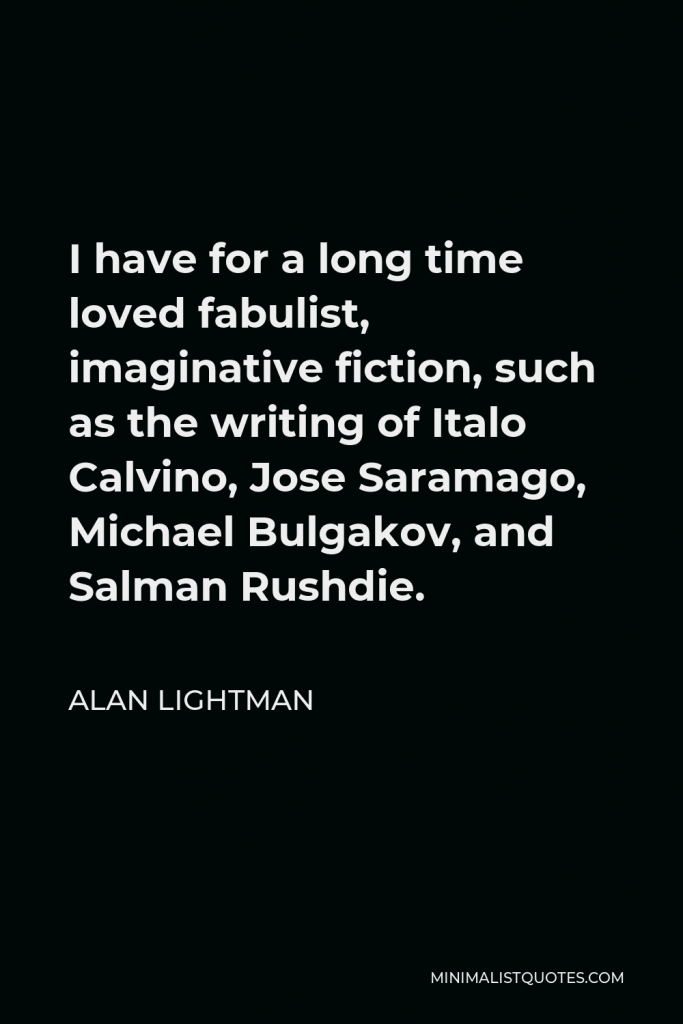

I have for a long time loved fabulist, imaginative fiction, such as the writing of Italo Calvino, Jose Saramago, Michael Bulgakov, and Salman Rushdie.
ALAN LIGHTMAN -





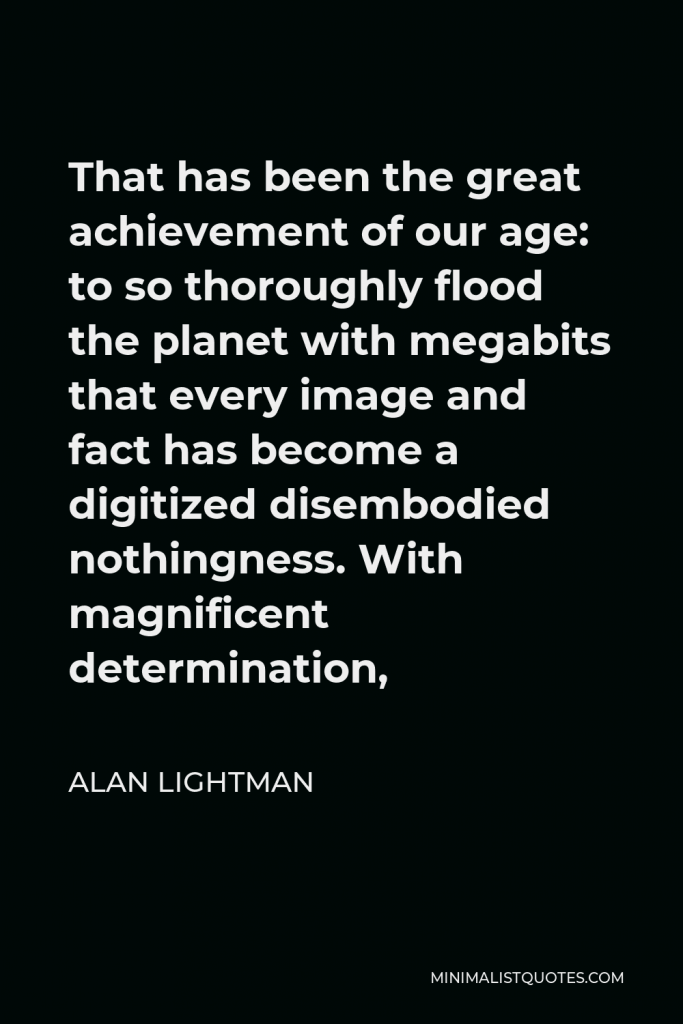

That has been the great achievement of our age: to so thoroughly flood the planet with megabits that every image and fact has become a digitized disembodied nothingness. With magnificent determination,
ALAN LIGHTMAN -





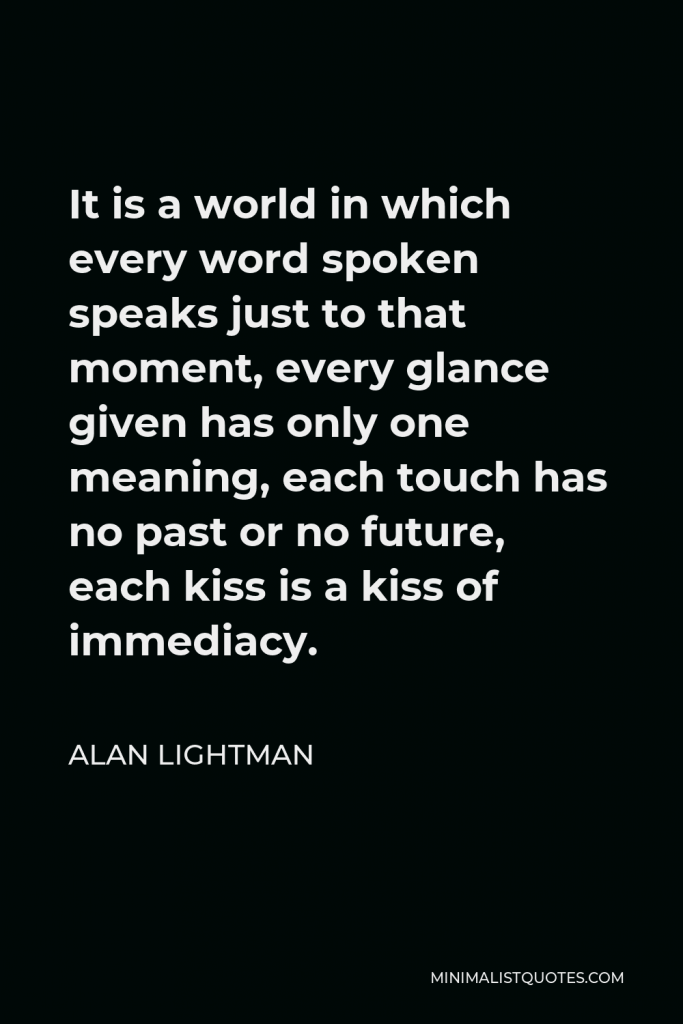

It is a world in which every word spoken speaks just to that moment, every glance given has only one meaning, each touch has no past or no future, each kiss is a kiss of immediacy.
ALAN LIGHTMAN -





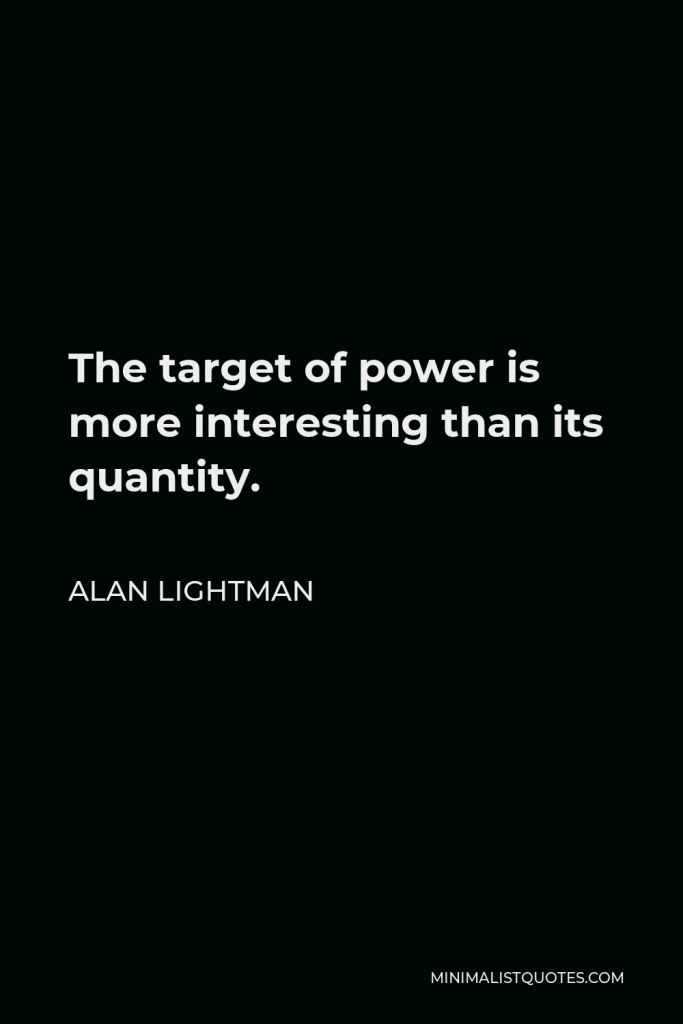

The target of power is more interesting than its quantity.
ALAN LIGHTMAN -





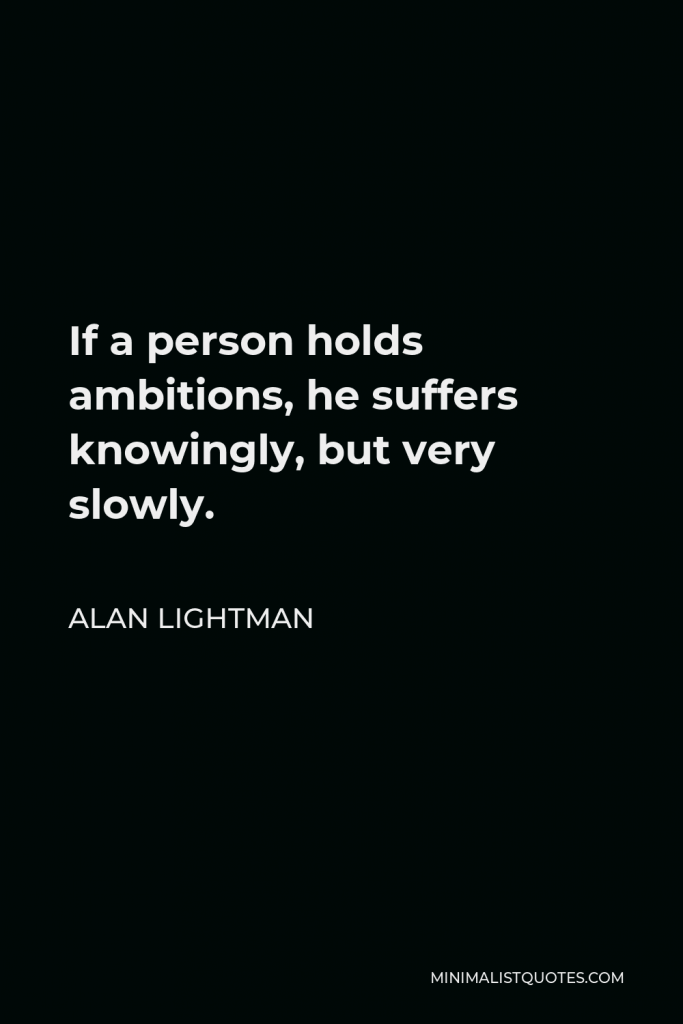

If a person holds ambitions, he suffers knowingly, but very slowly.
ALAN LIGHTMAN -





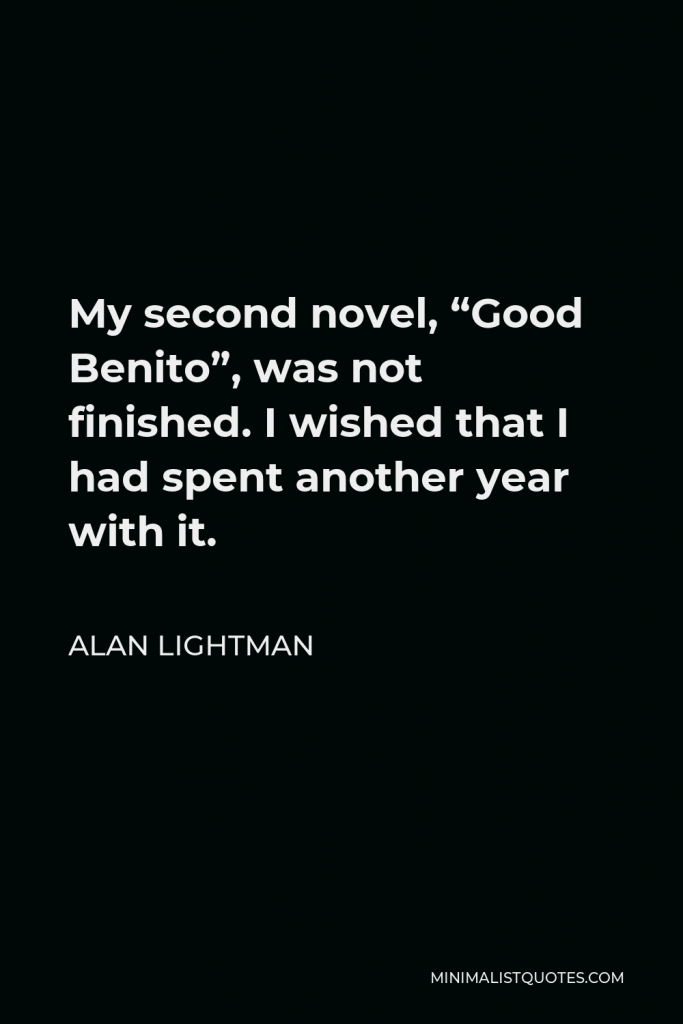

My second novel, “Good Benito”, was not finished. I wished that I had spent another year with it.
ALAN LIGHTMAN -







Thoughts are no more than electrical surges in the brain.
ALAN LIGHTMAN -





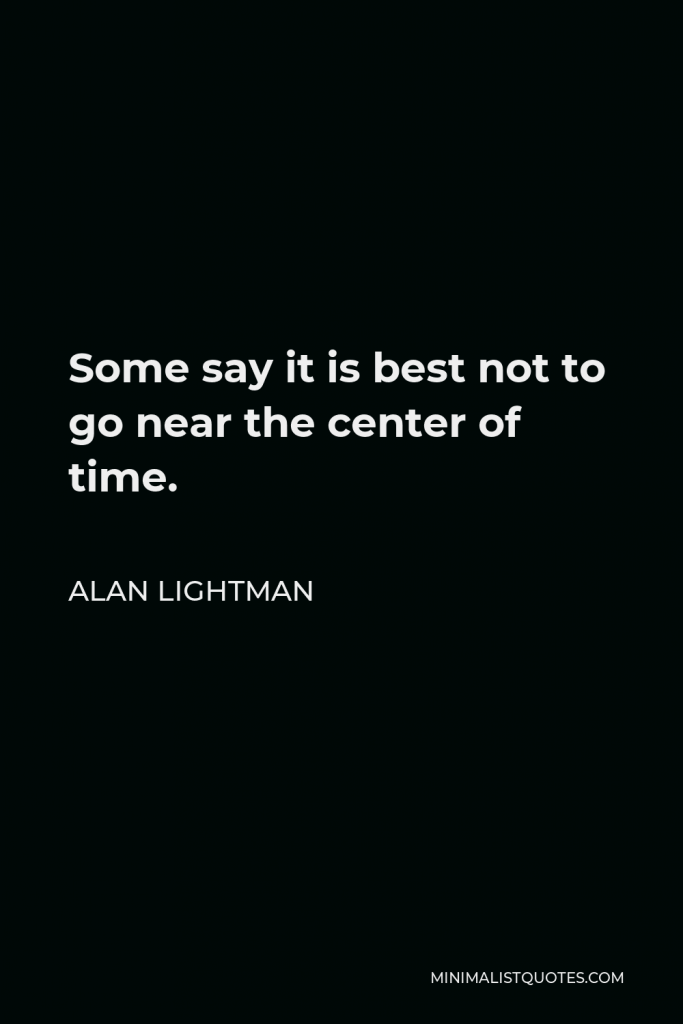

Some say it is best not to go near the center of time.
ALAN LIGHTMAN -





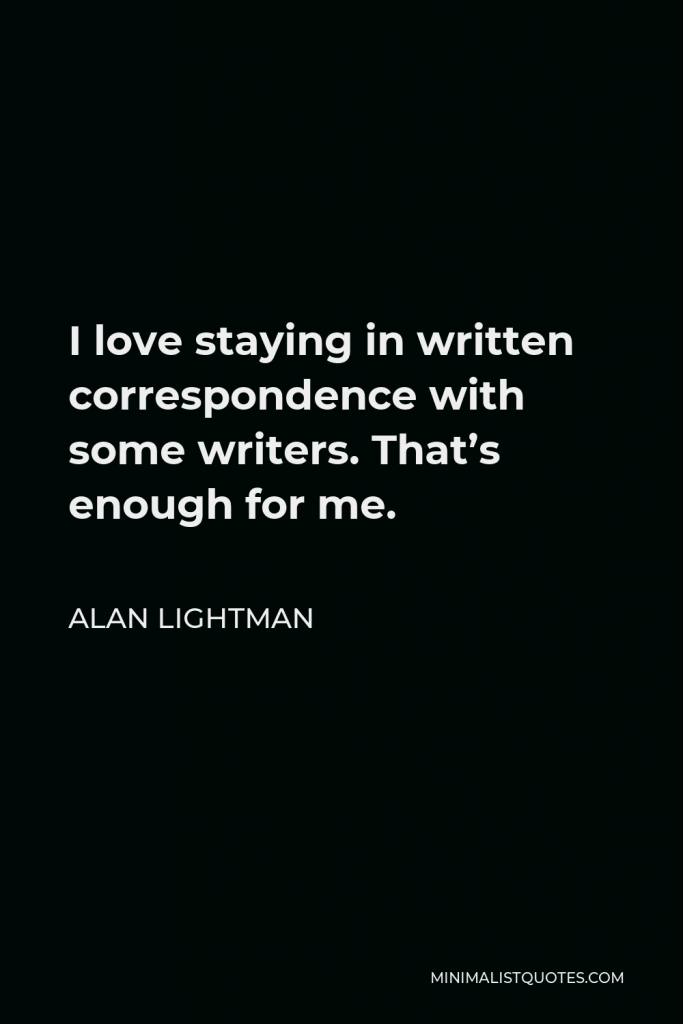

I love staying in written correspondence with some writers. That’s enough for me.
ALAN LIGHTMAN -





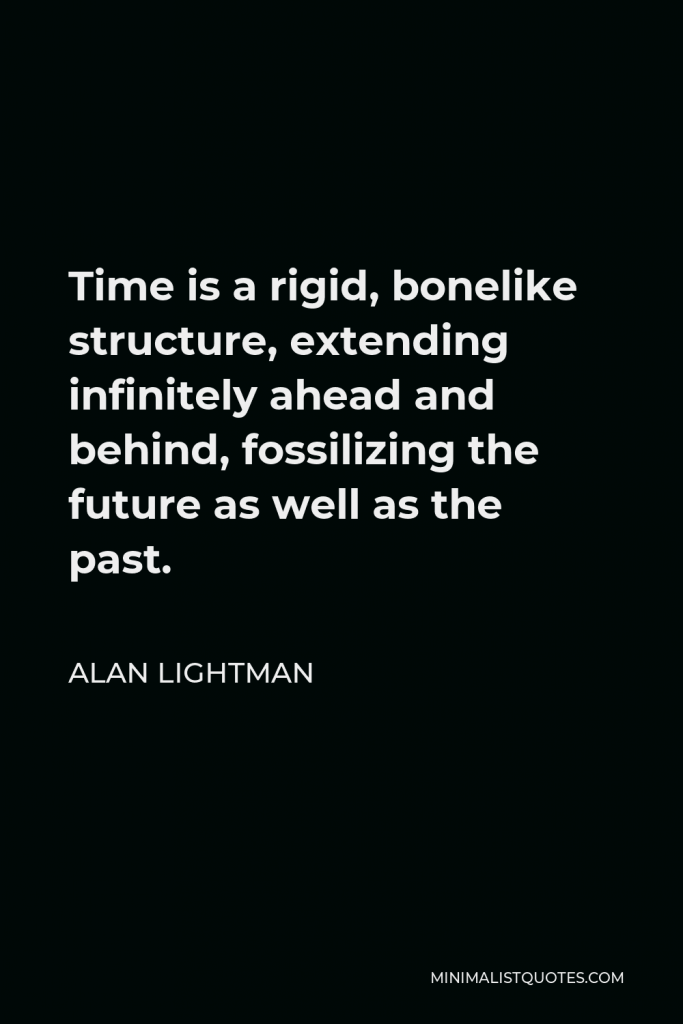

Time is a rigid, bonelike structure, extending infinitely ahead and behind, fossilizing the future as well as the past.
ALAN LIGHTMAN -





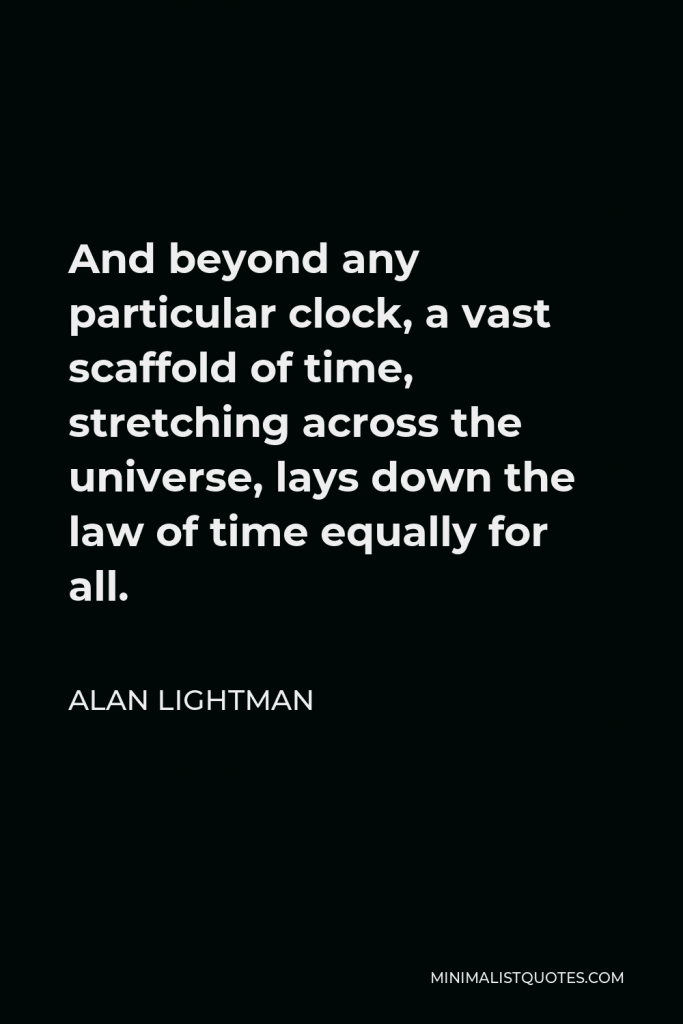

And beyond any particular clock, a vast scaffold of time, stretching across the universe, lays down the law of time equally for all.
ALAN LIGHTMAN -





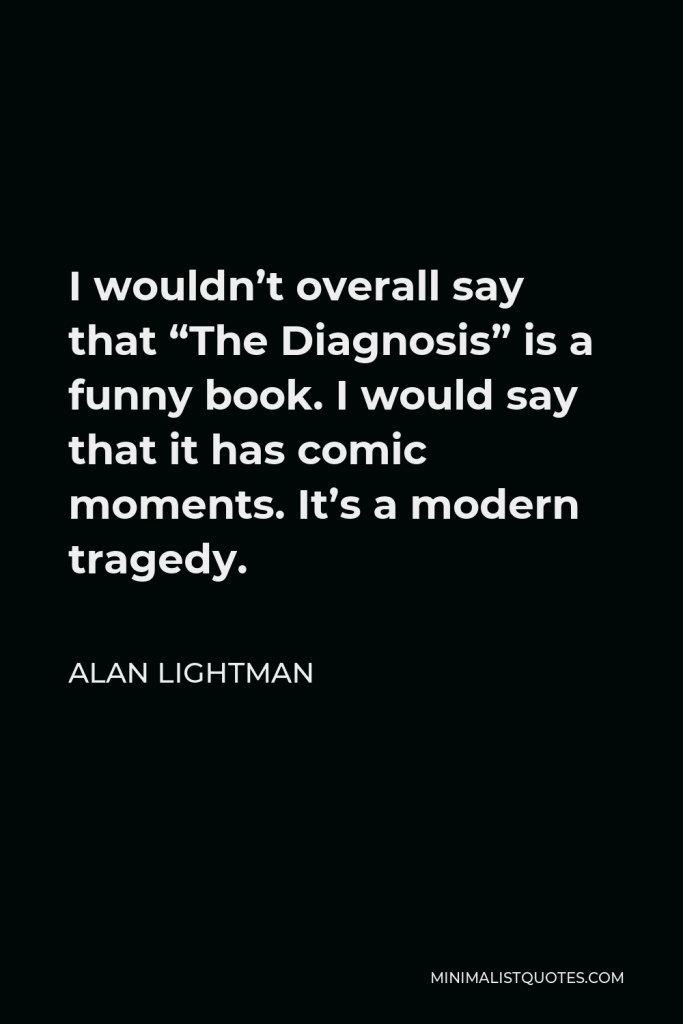

I wouldn’t overall say that “The Diagnosis” is a funny book. I would say that it has comic moments. It’s a modern tragedy.
ALAN LIGHTMAN -





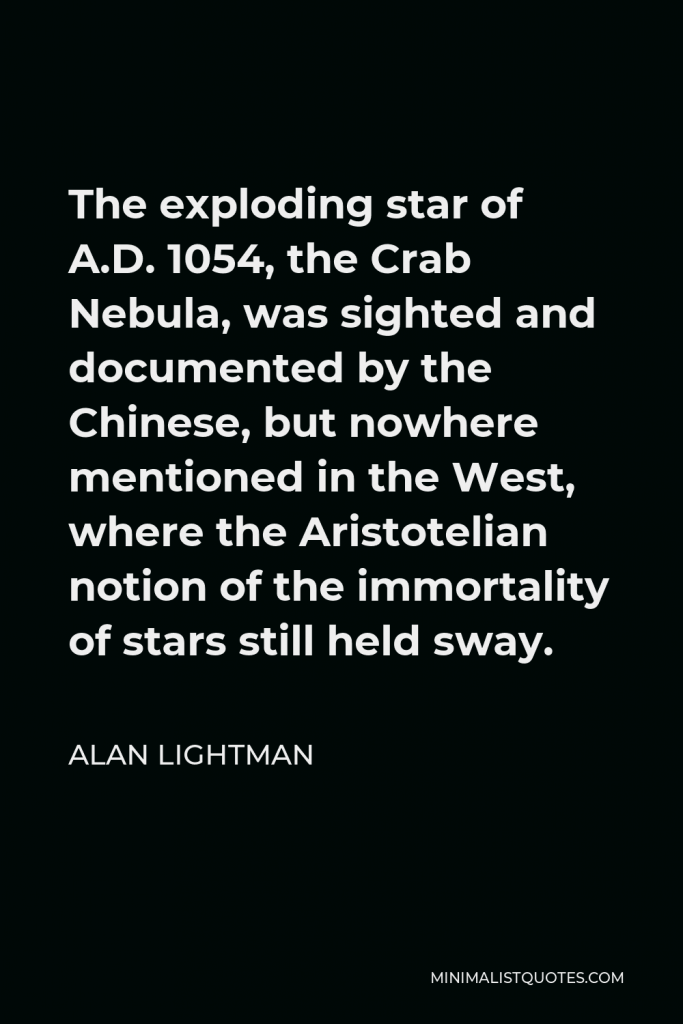

The exploding star of A.D. 1054, the Crab Nebula, was sighted and documented by the Chinese, but nowhere mentioned in the West, where the Aristotelian notion of the immortality of stars still held sway.
ALAN LIGHTMAN
